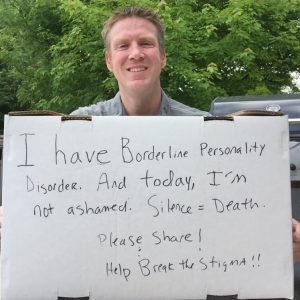by self-help expert Dr Pam Spurr.
In an ideal world friends are always there for each other, kind and caring. But in the real world most of us get a taste of when friends have bad moods. Or you fall out. Or you get envious because your friend suddenly wants to hang out with other people too.
Friendships don’t have to be perfect because no relationship is perfect. But never underestimate how friends impact your well-being and mental health.
So to make sure things stay positive, here are rules of friendship to live by:
- Friendships rock but only when you expect to be treated the way you treat friends. If you’re always the ‘good guy’ being kind and positive, but they don’t repay that, you need to question it.
- Listen to your intuition. It’s a ‘gift’ people ignore. If something doesn’t feel right in the way your friend treats you, then it isn’t right.
- Keep expectations realistic. We all get in bad moods at times. If you go to hang out with a friend, and they’re moody, ask what’s up. If they’re not prepared to say, tell them you’re there for them but you’ll see them later.
- Try to tune in to ‘normal’ bad moods compared to when something serious is going on. If your friend seems troubled and it goes on and on, ask if you can help. If really worried about them, talk to a trusted teacher, peer counsellor, school counsellor, or one of your parents.
- There’s room in your heart for more than one friend. Think about it: you love your parents, grandparents, brothers and sisters, cousins. It’s the same with friends, it doesn’t mean you have less of a friendship because your friend has other friends.
- Lots of friendships end because one friend hears the other’s gossiped about them. Know the difference between sharing information and gossiping. When you share info about a friend, you’d say it to their face. When you gossip, you wouldn’t say it to their face.
- The friend that 1) puts you down to make others laugh 2) or to make themselves feel better 3) or manipulates you 4) or pressures you to do something you don’t want to, is no friend at all. Best find others to hang out with.
- When feeling down, let your friends know. You’re not burdening them, in fact you deepen your friendship by opening up.
- Their emotional baggage is just that – their baggage! If they’re dealing with issues but taking it out on you, challenge them. Set boundaries and say something like: “I know you have things going on but you can’t take them out on me.“
- You can’t rescue a friend who refuses to listen and is doing bad/harmful/negative things. You can try and be there for them and encourage them to get help but you can’t take over and look after them. That’s a massive pressure on you.
- It’s tough but sometimes so-called friends turn on us, drop us, just don’t want to know any more. Remember this probably reflects on them, and although it’s hard, don’t take it personally.
- Be friendly to others. You may have a great group of friends but that shouldn’t stop you from reaching out to those who don’t.
- Let your friends know what they mean to you, why you think they’re great, praise their good qualities. They may not get support or praise at home.
Finally, it’s a painful lesson to learn but sometimes we have to move on from a friendship that’s gone wrong.
About the author: Dr Pam Spurr is an award-winning radio presenter, agony aunt, relationship, sex and behaviour expert, and life coach. Dr Pam is the author of 14 self-help books on topics including sex, dating, happiness, emotional eating and dream interpretation. She has appeared as a contributor on TV programmes including This Morning, Loose Women, LK Today, Daybreak, GMB, The Wright Stuff, BBC Breakfast, and for ten years running as a resident behaviour expert on Big Brother’s Little Brother and Big Brother’s Bit on the Side. Pam has a doctorate in psychology from a London teaching hospital and is a chartered research, academic and teaching psychologist. Her doctoral and postdoctoral research looked at parenting/family issues.
You can follow Dr Pam @drpamspurr or visit her website at www.drpam.co.uk.
Photo: friendship by bekassine... under Creative Commons license




